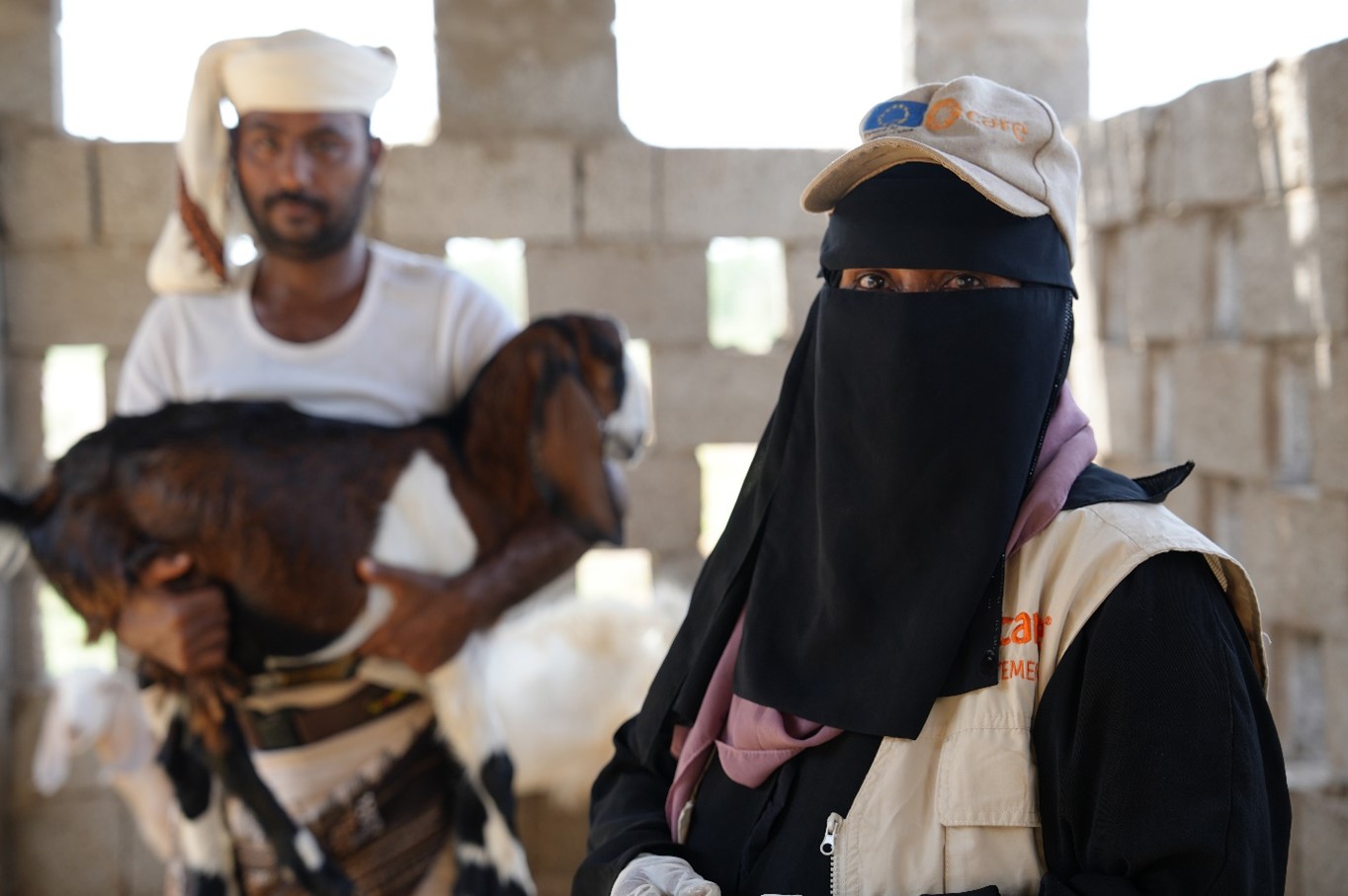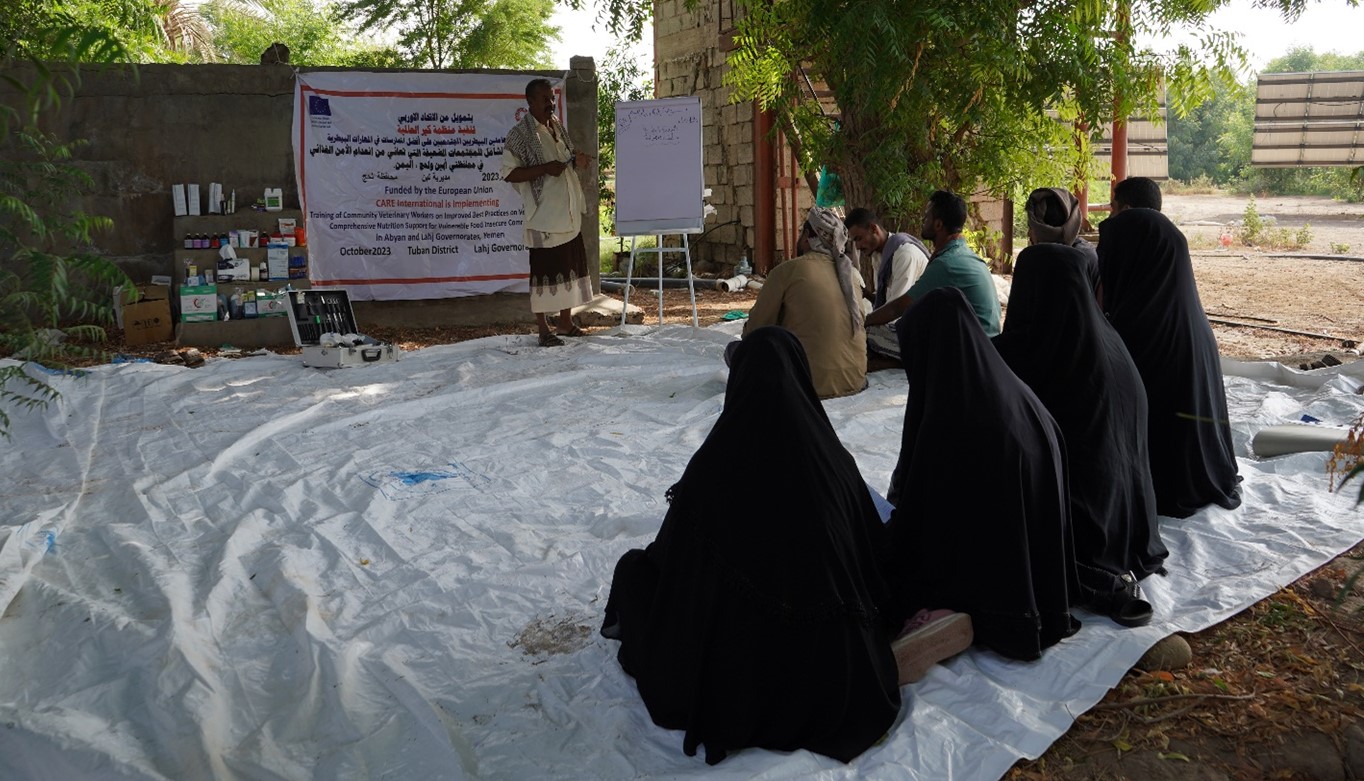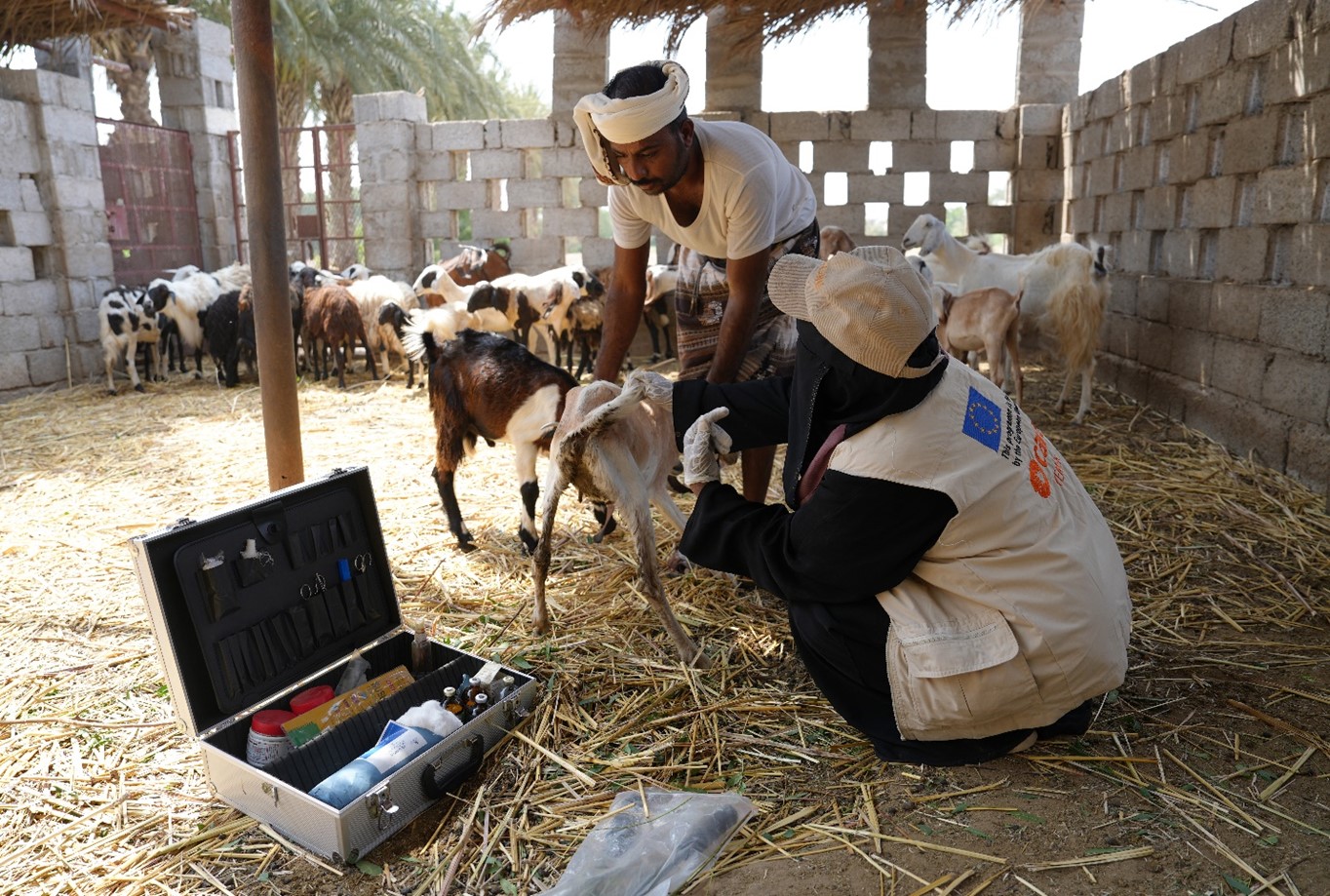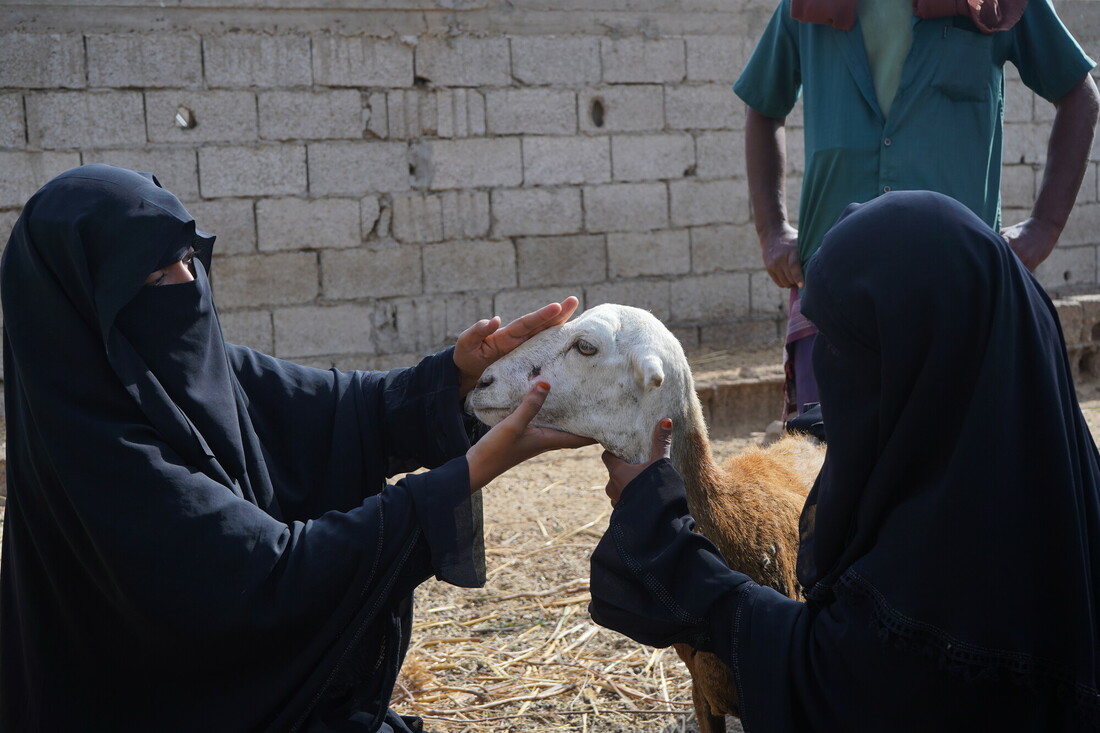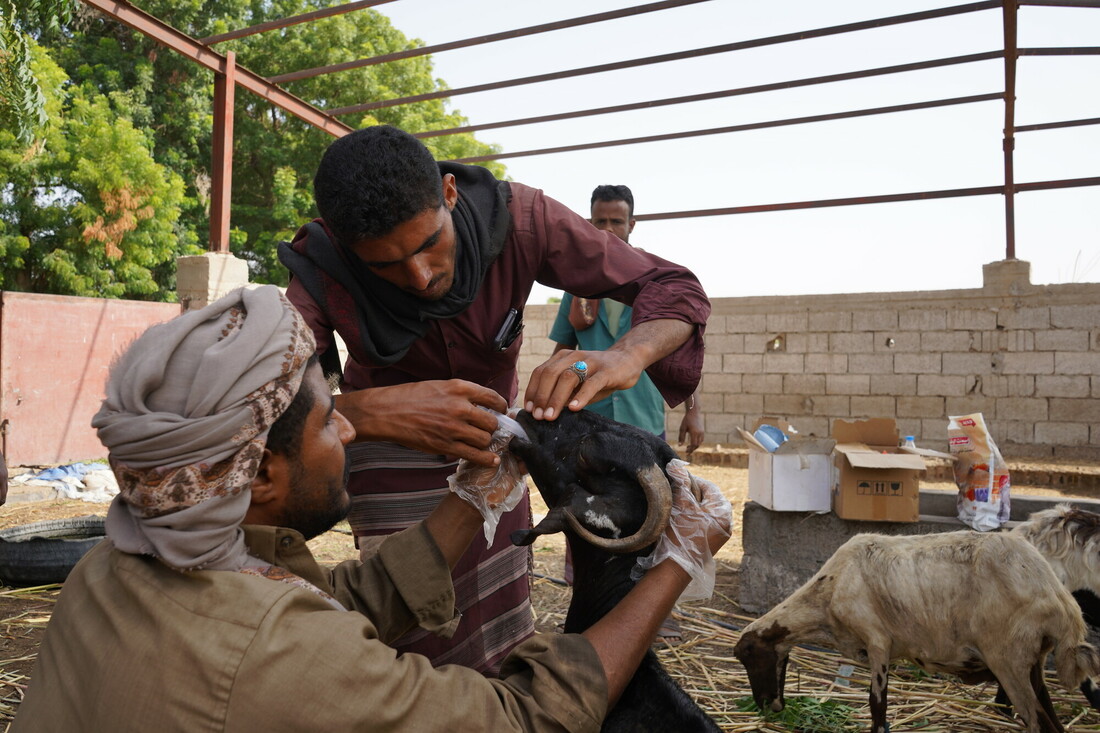In rural areas of Yemen, access to veterinary services is often difficult. A lack of adequate infrastructure such as roads, transportation, and veterinary facilities in these areas has hampered the provision of basic veterinary services. When treatment is urgently needed, rural pastoralists have to either watch their animals die or travel far from their villages to access veterinary services. This has had a negative impact on the livestock sector and increased food insecurity among pastoralists and vulnerable communities who depend on livestock as a main source of food and income.
As the demand for livestock products increases, so does the need for basic animal health services. However, the number of veterinarians in Lahj Governorate remains low, and in many areas such as Gawalla, they are non-existent.
In the absence of veterinary facilities, the contribution of local Community Health Animal Workers (CHAWs) is invaluable. CHAWs are individuals trained to provide essential veterinary services and health education in their communities. They play a vital role in improving livestock health, enhancing food security, and supporting the livelihoods of pastoralists.


